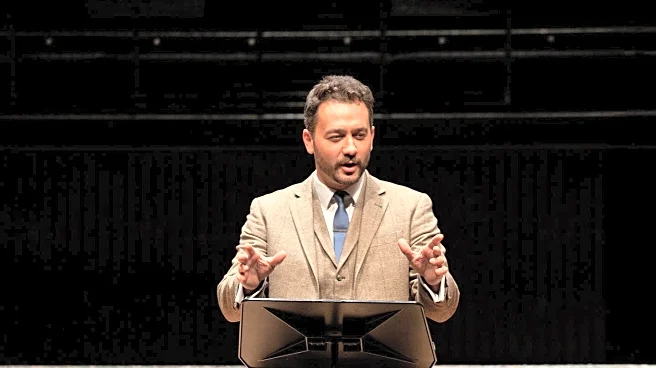What is the story about?
What's Happening?
President Vladimir Putin has indicated that discussions held with U.S. President Donald Trump in Alaska could potentially lead to peace in Ukraine. During a meeting of the Shanghai Cooperation Organization in Tianjin, China, Putin expressed appreciation for the efforts of strategic partners like China and India in resolving the Ukrainian crisis. He mentioned that the understandings reached during the Russian-American summit in Alaska might pave the way for peace, although no public agreements have been disclosed. Putin also briefed Chinese President Xi Jinping on the meeting and plans to share more details with other leaders at the summit.
Why It's Important?
The potential for peace in Ukraine is significant as it could lead to a reduction in geopolitical tensions and economic instability in the region. The involvement of major powers like the U.S., Russia, and China highlights the global interest in resolving the conflict. A successful negotiation could benefit Ukraine by restoring territorial integrity and stability, while Russia might gain relief from international sanctions. The U.S. could strengthen its diplomatic influence by facilitating peace, impacting global political dynamics and potentially easing tensions between NATO and Russia.
What's Next?
While optimism was initially high following the Alaska summit, progress has stalled with entrenched positions from both Russia and Ukraine. Moscow demands territorial concessions that Kyiv refuses to consider. The next steps involve continued diplomatic efforts and negotiations, possibly involving more international stakeholders. The outcome of these talks could influence future U.S.-Russia relations and the geopolitical landscape in Eastern Europe.
Beyond the Headlines
The discussions between Putin and President Trump could have deeper implications for international diplomacy and the balance of power. The involvement of China and India suggests a shift towards multilateral approaches in resolving global conflicts. The lack of public agreements raises questions about transparency and the potential for behind-the-scenes negotiations that could affect international trust and cooperation.















